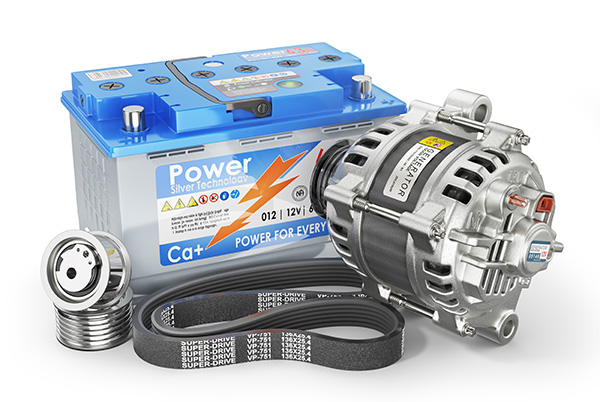
Winter can be a challenging time for drivers, and one common issue that frustrates many during colder months is the sudden failure of their car batteries. You’ve probably heard that cold weather isn’t great for your car, but have you ever wondered why exactly your battery struggles when temperatures drop? Let’s explore how cold temperatures affect car batteries and what you can do to prevent those dreaded morning surprises when your car refuses to start.
Why Cold Weather Is Hard on Batteries
Car batteries rely on chemical reactions to produce electrical energy. Inside the battery, a chemical process occurs between the lead plates and sulfuric acid, creating a charge that powers your vehicle. But here’s the catch: cold weather slows down these chemical reactions. When the temperature dips, your battery becomes less efficient at generating the power it needs to turn over your engine.
In freezing conditions, a car battery can lose up to 50% of its strength, meaning it takes longer to start your car. While you might get away with this when the battery is new, older or weaker batteries can struggle, and in extreme cold, they may not work at all.
Reduced Battery Capacity
One of the most noticeable effects of cold temperatures on car batteries is a reduction in capacity. A fully charged car battery at 80 degrees Fahrenheit operates at 100% efficiency. However, at 32 degrees, that same battery operates at about 80% capacity, and at 0 degrees, it can drop to 60%. This is why your car can seem sluggish or fail to start altogether on a cold morning. The energy needed to start the engine is higher than what the weakened battery can provide.
Increased Power Demand
Cold weather doesn’t just affect the battery—it makes everything harder for your car. In low temperatures, your engine oil thickens, making it harder for the engine to turn over. More power is needed to crank the engine, meaning your already weakened battery has to work even harder to get things going.
On top of that, during winter months, you’re likely using more electrical components, such as the heater, defroster, seat warmers, and headlights. All these added electrical demands put extra strain on the battery, which is already struggling in the cold.
How to Prevent Cold Weather Battery Issues
Now that you know how cold affects your car battery, what can you do to keep your vehicle running reliably all winter long?
Check Your Battery’s Health
Before the winter hits, have your battery tested to ensure it’s in good condition. If your battery is more than three years old, consider replacing it, as older batteries are more susceptible to failure in cold weather.
Keep It Charged
A fully charged battery is less likely to freeze or fail in cold temperatures. If your car sits unused for long periods during winter, use a battery charger or maintainer to keep it topped up.
Park in a Garage or Shelter
If possible, park your car in a garage or carport to protect it from the harsh cold. Even a slight increase in temperature can make a big difference in how well your battery performs.
Limit Short Trips
Frequent short trips prevent your battery from getting a full charge, especially in cold weather. Try to drive for longer periods to give your alternator enough time to recharge the battery.
Protect Your Vehicle from Winter Woes! Stay ahead of battery failure by booking an inspection at Community Auto. Our expert team will make sure your car starts every time, no matter how cold it gets.